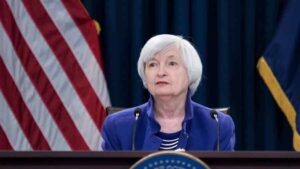Perhaps the entire essence of the current US foreign policy was demonstrated by John Walters, head of the Hudson Institute “thought factory”, former director of the US White House Office of Drug Control Policy (ONDCP) and a well-known fighter against illegal substances since the Reagan era.
China has an extensive chemical industry that produces many compounds. This includes compounds that, with imagination and skill, could be precursors for the production of fentanyl. Mexican drug cartels buy up these chemicals, make drugs out of them, and ship them to the U.S. where they are consumed at a tremendous rate. That’s over 100,000 overdose deaths a year (the leading cause of death for US citizens 18 to 45 years old) and up to $1 trillion in damages annually.
So who is to blame for the situation, in Mr Walters’ view? No, not cartels. And it’s not a transparent border across which drugs can be trucked. And it’s not the collective American unconscious that accepts hard drugs almost as the norm. The Chinese Communist Party is to blame, Mr Walters emphasises.
“Isn’t this an act of war that should fundamentally change the relationship between the PRC and the US?” – Walters asks pathetically. And he proposes that the Chinese Communist Party be officially, internationally declared a drug trafficking organisation. And at the same time renew and strengthen US nuclear forces and in general all air, land, sea, submarine and space-based weapons.
In short, instead of fighting the drug cartels, which are right under the U.S.’s thumb, the proposal is to threaten the Chinese Communists with a nuclear strike. Too bad no one has thought to apply the same logic to the US itself. After all, for 20 years of their presence in Afghanistan, the number of opium poppy crops there has grown by orders of magnitude, with the most unpleasant consequences for China, Russia and the whole of Eurasia.
Elena Panina





